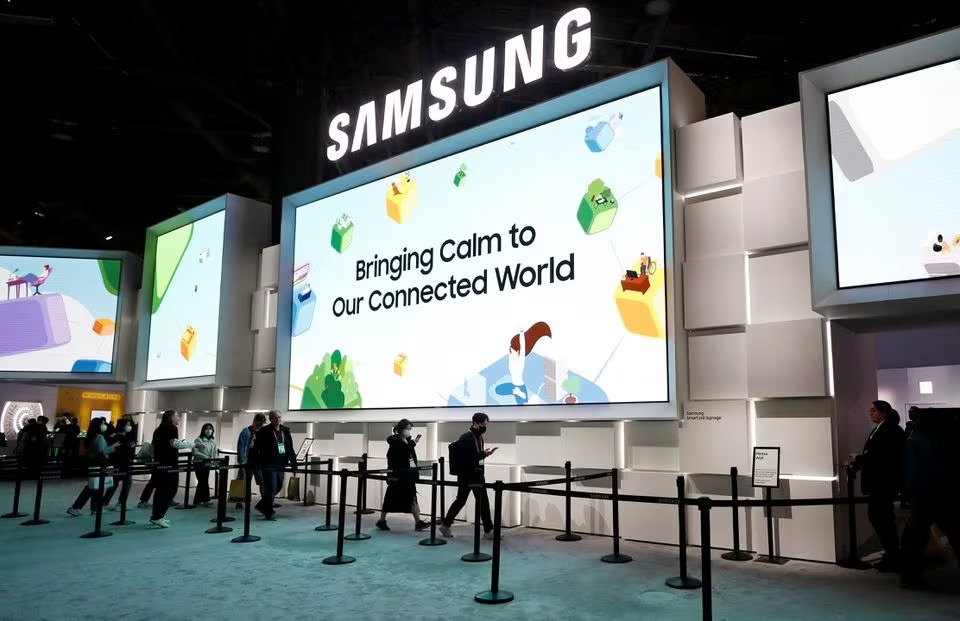
Samsung Electronics flagged a continued recovery in memory chips and tech demand in 2024, after reporting a 34 percent on-year drop in fourth-quarter profit despite a memory price rebound, as consumer demand remained weak in many businesses.
The world’s biggest maker of memory chips said it expected mobile and PC makers to place more and better chips in devices as the use of artificial intelligence expands, while the need to replace older servers would also aid a gradual recovery in demand.
“In 2024, the memory business expects the market to continue to recover despite various potential obstacles, including interest rate policies and geopolitical issues,” Samsung said in a statement.
Samsung said operating profit fell to 2.8 trillion won (S$2.83 billion) in October-December, versus 4.3 trillion won a year earlier, and in line with the company’s estimate of 2.8 trillion won flagged earlier this month.
For the full year, its chip business swung to a record loss of 14.9 trillion won in 2023 from a 23.8 trillion won profit a year earlier, hit by an unprecedented downturn caused by weak demand for gadgets that use chips.
However, fourth-quarter losses were less than every other quarterly loss in 2023 in the business that has historically been Samsung’s cash cow.
Losses in the chip business shrank to 2.18 trillion won in the fourth quarter, versus a 3.75 trillion won loss in the third quarter, as memory chip prices rebounded.
Chinese PC and mobile makers began to restock memory chips during the quarter, after using up their stocks for so long.
Cross-town rival SK Hynix also said last week chip prices would improve this year as clients would need to restock and manufacturers would continue to cut legacy chip production.
Samsung said its memory business would focus on cutting-edge chips and improve profitability by actively addressing the demand for high bandwidth memory (HBM) and server products related to generative AI this year.
Mobile rebound
The mobile devices business booked a 2.73 trillion won operating profit in the fourth quarter, up from 1.7 trillion won a year earlier on stronger demand for pricier smartphones, more tablet shipments with new product releases and demand for wearable devices during the peak holiday season.
In 2023, Apple ended Samsung’s 12-year run as the world’s top seller of smartphones, snaring a 20 percent market share as demand for premium phones outpaced those of more affordable models, according to a report from International Data Corp.
However, Samsung plans to grow annual flagship smartphone shipments at a double-digit rate this year and solidify its lead in foldable phones, as competitors like Alphabet’s Google, Motorola and China’s Honor and Oppo increase their foldable offerings.
Among the businesses that remained vulnerable to weak consumer demand were Samsung’s chip contract manufacturing, TV and home appliance units.
Samsung’s share price fell 0.7 percent in morning trade versus a flat benchmark index.
Its shares rose 42 percent in 2023 on expectations of improved memory chip demand but have fallen about 5 percent year-to-date on profit-taking by local institutional investors, analysts said.
Fourth-quarter revenue fell 4 percent to 67.8 trillion won.

